
Saudi German Hospital Dubai
Hessa Street 331 West, Al Barsha 3, Exit 36 Sheikh Zayed Road, Opposite of American School - Dubai - United Arab Emirates
Endoscopic Retrograde Cholangiopancreatography (ERCP)
Starting from Price on request

Saudi German Hospital Dubai
Hessa Street 331 West, Al Barsha 3, Exit 36 Sheikh Zayed Road, Opposite of American School - Dubai - United Arab Emirates
Established
2012
Highlights at Saudi German Hospital Dubai
Map View
 Click to explore
Click to explore
-
Reviews (137)
3.3 Accreditations



Languages spoken
- Arabic
- English
- French
- German
- Italian
Endoscopic Retrograde Cholangiopancreatography (ERCP) at Saudi German Hospital Dubai
What does Saudi German Hospital Dubai offer patients?
How many specialists are there and what accreditation's have been awarded to Saudi German Hospital Dubai?
- JCI Accredited
- ISO 9001:2008
- TEMOS
Facility Services Available at Saudi German Hospital Dubai


















WHY US?
At Medijump, we're making medical easy. You can search, compare, discuss, and book your medical all in one place. We open the door to the best medical providers worldwide, saving you time and energy along the way, and it's all for FREE, no hidden fees, and no price markups guaranteed. So what are you waiting for?

Free

Best Price

Widest Selection

Risk-Free
What you need to know about Endoscopic Retrograde Cholangiopancreatography (ERCP) in Dubai
Endoscopic Retrograde Cholangiopancreatography (ERCP) is a procedure to diagnose and treat problems of the bile and pancreatic duct by combining upper gastrointestinal endoscopy and X-rays. For diagnostic purposes, the procedure is performed to find the cause of obstructive jaundice, chronic pancreatitis, and pancreatic tumor. For therapeutic purposes, the procedure can be performed to extract gallstones or other biliary debris, to treat the sphincter of Oddi (endoscopic sphincterotomy), to insert a stent into the common bile duct and/or the pancreatic duct, and to dilate the strictures.
What's the Recovery Time for Endoscopic Retrograde Cholangiopancreatography (ERCP) Procedures in Dubai?
You must rest for at least 24 hours and you should be able to resume your normal activities the next day after the surgery, but make sure to take things easy for a couple of days.
What's the Success Rate of Endoscopic Retrograde Cholangiopancreatography (ERCP) Procedures in Dubai?
ECRP is safe and effective. However, it has been estimated that the procedure carries around 3.5 to 5 percent risk of post-ERCP pancreatitis (PEP). Other side effects and risks associated with ECRP include infection of the gallbladder or the bile duct, excessive bleeding (hemorrhage), perforation in the pancreatic or bile ducts, tissue damage from X-ray exposure, and an abnormal reaction to the sedative. Complications occur in about 5 to 10 percent of all ERCP procedures.
Other Gastroenterology Procedures Available at Saudi German Hospital Dubai
Doctors at Saudi German Hospital Dubai
-
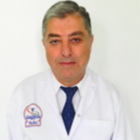
Dr. Houssein Ali Mustafa
- Cardiology
VIEW DETAILS
-
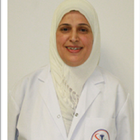
Dr. Thanaa Ward
- Dermatology
VIEW DETAILS
-
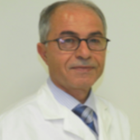
Dr. Kadry Barry
- Internal Medicine
VIEW DETAILS
-
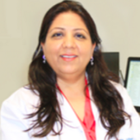
Dr. Rachna Sahityani
- Nephrology
VIEW DETAILS
-
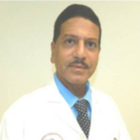
Dr. Samir Yacout
- Neurosurgery
VIEW DETAILS
-
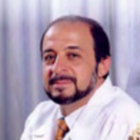
Dr. Khalid A Batterjee
- Orthopedics
- Spinal Surgery
VIEW DETAILS
-
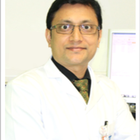
Dr. Kamalesh Pal
- Pediatrics
VIEW DETAILS
-
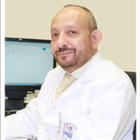
Dr. Safwat Galal Eldin El Shafey
- Psychiatry
VIEW DETAILS
-
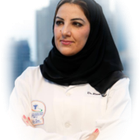
Dr. Reem Osman
VIEW DETAILS
Hospitals and Clinics Nearby Saudi German Hospital Dubai Offering Endoscopic Retrograde Cholangiopancreatography (ERCP)

CONTACT SUCCESSFUL











